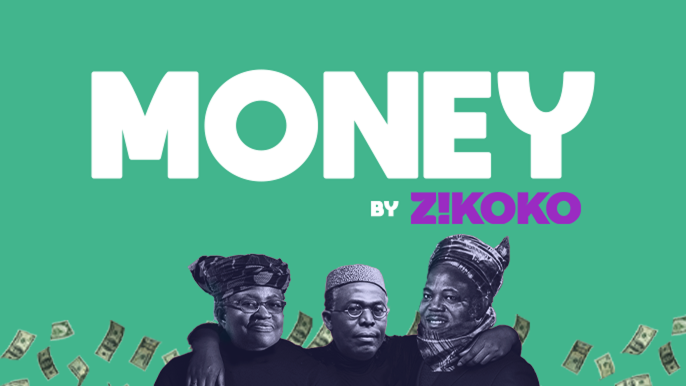#NairaLife: He Went From Washing Cars for a Living to Building a Multi-Million Naira Real Estate Business

Every week, Zikoko seeks to understand how people move the Naira in and out of their lives. Some stories will be struggle-ish, others will be bougie. All the time, it’ll be revealing.

Tired of your money giving you zero returns? With Mkobo’s Save & Win, your ₦10,000 could turn into ₦1,000,000 —no stress, no long stories. Just save smart and win big! The more you save, the higher your chances. Click here to get started. #EveryKoboCounts

What’s your earliest memory of money?
I was 18 years old and had just finished secondary school. I needed money to pay for my exam, so I worked at a bakery for ₦100/day.
What exam?
GCE. I remember that was the one I could afford. NECO was free because it was relatively new, and WAEC was too expensive. I needed to write both, so I settled for external GCE.
I worked at the bakery until I gathered the ₦7500 exam registration fee. It was a lot of work, but also my only option to raise the money. My parents couldn’t afford it.
What did your parents do for money?
My dad was a welder, and my mum was a petty trader. They had six children, and we all lived in a single room. Try to imagine eight people living in one room. It was so bad.
I remember growing up, my dad earned ₦10k/month. He’d remove ₦3k for his transport fare and give my mum the rest to buy food for the month. On the other hand, my mum jumped from selling one thing to another, depending on which moved faster.
My siblings and I also helped her hawk these items after school. I hawked everything from kuli-kuli to fried fish and dried ponmo.
Back to the GCE. I wrote the exam and got good grades. Unfortunately, my sibling and I finished secondary school at the same time. My elder brother was also in the polytechnic. By my calculations, my parents couldn’t afford to send us all to a higher institution. I had to look for another way to make money.
Did you find any?
I did. One of my dad’s brothers drove for a banker, and I joined him at the quarters where he lived. His neighbourhood was filled with car dealers who lined cars on the road, so I started helping them wash the vehicles.
My pay was ₦10k/month, but I frequently made more from tips and extra money from my oga, especially when he made a sale. Sometimes, I made up to ₦25k or ₦30k monthly. December was the best month, especially when the diaspora guys came and paid in cash. I could make up to ₦40k in December.
Would you say it was good money?
It wasn’t mine to spend alone, so I couldn’t do much with it. I planned to save some of my salary for school, but I also had responsibilities.
I had to support my uncle. He was a driver, so he wasn’t buoyant. He had two wives back in our hometown, and travelled to see them every month. So, after I collected my salary, I’d give him ₦7k to hold. Sometimes, he borrowed money from me and never paid it back.
There was also black tax. I had to send money home to support my brother in school. Sometimes, I’d get calls from home after my brother had come home and packed all the food back to school, so of course, I’d have to send money. Then, I’d survive on the remaining money left for the month. I saved a little, but it wasn’t enough to do much.
I worked at the car dealer for about two years. Something interesting happened along the way.
Tell me about it
I started attending a church in the area, which reshaped my mind. I joined a cell group, and my cell leader helped me set values for myself; to look beyond my circumstances and see how I could be more. I knew I couldn’t continue washing cars indefinitely. My hands peeled a lot because of the water and soap. I kept praying and asking God, “What next?”
Then one day, while cleaning the cars and preparing to close, I met a pastor. His car had issues and stopped near our parking slot, so he asked me to help him. I pushed the car into the slot, and even lent him a battery from one of our cars to start his car. We tried several things. Still, the car didn’t start.
The pastor begged to drop the car there overnight, and he’d send his mechanic the next day. At this point, it was 10 p.m. I agreed, but refused the money he offered. He returned the next day with his mechanic, and I still refused money after the car started working. Surprised, he gave me his card and said I should call him. I didn’t remember to call him for days.
Ah
I stumbled on his card one Sunday after service and called him. He told me to come to his office, which wasn’t too far from where I worked. When I got there, he was with his friend. The friend asked, “Is this boy you’re talking about?” Apparently, the pastor had told him the story of how I helped him without collecting money.
To cut the story short, the pastor asked me to work with him. He was also a real estate consultant. Me that was already looking for job. I immediately agreed.

Join 1,000+ Nigerians at The Naira Life Con by Zikoko for a day of real, raw conversations about money and financial freedom. Click here to buy an early bird ticket!
What were your duties?
I just followed him around, running errands for ₦25k/month. The errands were mostly, “Go give this survey plan to XYZ person.” I didn’t understand how real estate or surveying worked, but I wanted to learn. A fellow employee who studied estate surveying and valuation taught me the basics, but I didn’t fully understand it.
After six months of working with the pastor, I decided to leave. The ₦25k wasn’t great, considering I didn’t get tips like at the car slot. My salary hardly covered my bills. The office was also not as close to my house as the car slot, so I spent more on transportation. It wasn’t worth it.
So, what did you do next?
I decided I didn’t want to work under anyone again. I moved back home and asked around for people who could teach me surveying. I didn’t have the money to attend school, but I knew the basics and needed someone to train me.
A relative finally introduced me to a surveyor, and I put my heart and soul into learning the business. I’d trek about an hour every morning to the surveyor’s office. Once there, I’d clean, run errands, and follow the surveyors everywhere. They took me to sites, taught me to read tape, and sent me to the Ministry of Lands to process approvals. I caught on quickly and was training younger people in the office within months.
Were you getting paid?
I wasn’t working under the surveyor, so I didn’t have a salary — I was just learning the business. However, I made money from practising what I was learning and doing my own thing. I find it easy to relate to people, so I befriended many of the ministry’s staff. It helped me get a lot of opportunities.
Someone could just ask, “I want to sell this land, but I don’t have a survey plan. Can you do it?” I always said yes. I’d go there, measure, and they’d pay me. Sometimes, I charged up to ₦100k. Other times, I negotiated a percentage of the land sale.
I was the guy who knew how to do everything. Want to buy land? I can help you with the property search. Need a Certificate of Occupancy (C of O) or building approval from the ministry? It’s me. Whatever it was, I did it. People also constantly referred me for jobs.
Between 2006 and 2009, I comfortably earned up to ₦250k/month — sometimes more. I rented a mini flat, furnished it, and even had an air conditioner.
Energy!
I was making cool money. In 2009, I planned to finally go to a higher institution to get an actual certification in surveying. I even rewrote the GCE because the first one I did was for science subjects, and I needed commercial subjects for surveying. I passed, but had to pause school plans again, like the last time.
What happened this time?
I got someone pregnant. She was my church member, and the church didn’t want to hear that we had the baby outside of wedlock. So, we got married and I had to leave my school plans to focus on my family and increased responsibilities.
This was the same period I got my big break.
I’m listening
I met someone who would turn out to be my long-term business partner. Let’s call him Alhaji. We sat beside each other on a bus, and I noticed he was a property guy because he was on a call.
The person he spoke to on the phone asked him a logic question: How many acres make one hectare? The person probably wanted to make sure Alhaji knew the business he was trying to sell. I noticed Alhaji struggled with answering the question, so I whispered to him, “It’s 2.5 acres.”
After Alhaji finished his conversation, he turned to me and asked if I was a surveyor. I said yes, and he said he’d like to work with me. He was a property consultant and needed a surveyor to work hand-in-hand with him. We exchanged contacts, and within a week, I got my first big job from him: ₦10m.
Woah. How did that happen?
Alhaji had acquired a lot of land in Ibeju Lekki and Ajah, which were just springing up. He wanted to build an estate on one of those massive sites and needed someone who could handle it. It was a waterlogged area, meaning double work.
I did the job, signed the perimeter copy, and lodged the record with the ministry. Everything went smoothly, and he was happy. I was extra happy. It was the first time I made so much. I couldn’t sleep. For one week, I was just shouting.
That job was such a major step for me. Prior to this, I’d bid for jobs worth ₦2m – ₦3m, but the clients wouldn’t call me back, except when they had smaller jobs of ₦150k – ₦200k. When I asked why, they’d say I was young and clients were sceptical that I could handle big jobs. I was 24 or 25 years old.
Hmmm
I’ll forever be grateful to Alhaji for trusting me with that opportunity. He took me along on subsequent jobs, and my network expanded. I met more people who were willing to pay well for my work.
I also got a recurring gig with a telecommunications company. They needed a surveyor to convert latitude/longitude data to UTM coordinates and use that to acquire land to erect masts. Those gigs took me around Nigeria and made me good money.
How good was the money?
I made between ₦1m – ₦4m per gig, and they came consistently for a year. I built my first house that year and bought a Toyota Muscle. This was around 2010/2011 when the car had just entered Nigeria. Me too, I did big boy.
After the gig ended, I faced my regular surveying jobs, making money here and there. Then, in 2017, I started thinking about more ways to make money. I didn’t have a problem finding clients, but the ones that paid well didn’t come daily. After much thought, I decided to build a hotel. It seemed like a way to get steady business.
I discussed with a friend, and we found land near my area for ₦5m. I paid for it and did the necessary documentation. Three weeks later, my friend called and said someone just priced it for ₦7m. A ₦2m profit in less than a month? I sold the land immediately. That incident gave me the idea for my next business: buying land to resell.
How did you go about that?
I began diverting any money I made from surveying into buying land. After selling the first one, I found another full plot of land with a small house on it. I bought it for ₦12m and made an extra ₦6m after reselling.
Trust land agents, they started calling me regularly to inform me whenever land was available. I bought another one for ₦15m and sold it for ₦25m; ₦10m profit just like that. At one point, I thought, “What if I build on these lands and sell the property?” A bag of cement was still ₦2600. It wouldn’t cost me too much to build, and I’d profit even more.
So, I bought three plots of land for ₦28m. I sold part and designed the rest like a mini-estate. I built the first duplex for ₦20m, and sold it for ₦40m. I used the ₦40m to build three more house units to sell. By the time I finished the mini-estate, I had close to ₦100m in my account. It blew my mind.
I mean, my mind is blown too
Since that first experiment, building houses and mini-estates for sale has remained a consistent income source. Land value and people’s interest in it increase as soon as they see a building on it. I pay attention to the entire infrastructure, from securing NEPA poles to getting prepaid metres and interlocking the roads to ensure people invest.
I don’t build all the time. Sometimes, I just resell the land for a profit. I haven’t abandoned surveying either. My old clients still call me for surveying jobs, and I can’t tell them no. I don’t reject “small” jobs. All I need to do is just drop my big car and carry the small one to the site, so they don’t get scared and stop calling me.
In fact, I recently went to do a ₦100k job. I still go to the Ministry of Lands myself to sort out approvals and relate with the staff like I used to. The only difference now is that I’m also doing my own thing in a big way.
What’s your current monthly income like?
₦100m is a typical average from my surveying and real estate companies. In a good month, I can make up to ₦200m. It can also be as low as ₦10m in a bad month, especially when I’m in between projects.
It typically takes me three to four months to complete a project, and I can work on two or three estates simultaneously. I have engineers who work for me, but I like being able to get to my sites to check on progress quickly. Clients are often ready to buy my buildings as soon as they’re complete because I’ve built a reputation for using good materials. Sometimes, they buy while we’re still painting.
In addition to my businesses, I have five properties that bring me ₦15m in rent annually and a ₦70k/day shortlet.
You’ve literally gone from 0 to 100. How has your income growth impacted how you think about money?
Once you use money well, it will work for you. I think everyone must reach a point in life where their money works for them even while they sleep. That’s the level I’m currently at. I don’t need to think about where money will come from because I’ve created a process that allows it to come in steadily.
I also don’t keep money. As it enters my hand, I channel it back to the business. About two years ago, my account officer tried to get me to save ₦100m in treasury bills, but the returns didn’t make sense. I think it was supposed to be about ₦1.5m.
Why would I lock money up somewhere for small returns when I can use it to build a house and make double my investment? So, I don’t save money anywhere; everything returns to the business.
Are there risks to putting all your money into the buildings, though?
Not really. I’m a technical surveyor, so I know how to acquire good land. I know the potential problems to look out for, and I don’t go near government commitment lands.
That said, I still have problems with Omo Onile from time to time. I lost ₦15m to an Omo Onile dispute a while ago. The dispute became a police case, but I later abandoned it because it wasn’t worth it.
Why chase ₦15m when I could make more without stress? I just took it as a lesson. Before I make any purchase now, I meet the Oba and every community leader. If there’s a need for settlement, I tackle it immediately.
Out of curiosity, what kind of lifestyle does your income afford you?
Well, I have the resources, but I live a moderate life. I still live in the same house I built years ago, and my three cars are easy to maintain. I have one driver, and my children don’t attend overly expensive schools. My typical expenses are mostly food and school fees. I don’t live extravagantly at all.
Let’s break down these expenses into a typical month
I think I comfortably live on less than ₦2m in most months:

My ajo contribution also serves as my travel budget. My share is usually ₦2m at the end of the year, then I add more money to it to travel overseas for a short break.
Is there anything you want right now but can’t afford?
Not at all. The only reason I wouldn’t be able to get it is if I don’t want it.
How about the last thing you bought that made you happy?
I did a crazy thing and bought a 2022 Jeep two months ago for ₦25m. I just thought, “All this money I’m making sef. How much am I even eating out of it?” Material things don’t necessarily make me happy; I just wanted to splurge on something, and I chose the car.
Do you typically feel that way? Like you’re not spending your money on yourself?
Of course. I don’t even eat much, so it’s not like I’m using the money to buy food. Sometimes, I feel like I’m making all this money, but I’m just there. I don’t do anything out of the ordinary.
However, I remember what it was like for my family to live in a leaky room, so I still work. Also, I take God’s word seriously, and it shapes my mindset. I know he expects me to live a greater life and achieve more, so I keep gunning for more. I set targets to hit higher financial levels because I want to improve and do more.
What are some of these levels you still want to reach?
I listened to a podcast the other day, and the real estate guy said he bought land for ₦3.4bn. I knew this person years ago, and even the land he was talking about.
This person might’ve had better funding opportunities, while I started my own small small. But I know I can attain such a level too; where I can push bigger projects, employ more people and change their lives too.
Recently, one of my workers told me about the house he just built. Another one said he was planning to build close to me. Those are the things I like; I want to directly impact other people’s success as I grow as well.
I should mention that I finally returned to school about two years ago. My colleagues kept saying it was past time to have gotten the certification part sorted, so I’m back at it.
Rooting for you. How would you rate your financial happiness on a scale of 1-10?
9.5. I learned how to use my money well, and the results speak for themselves.
If you’re interested in talking about your Naira Life story, this is a good place to start.
Find all the past Naira Life stories here.


































